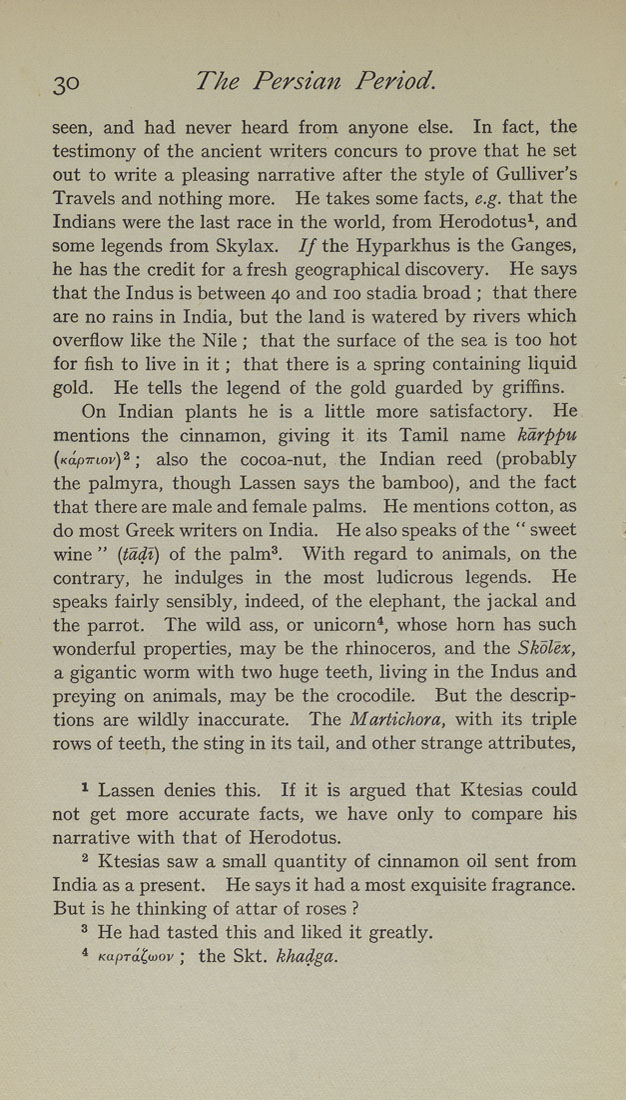30 The Persian Period.
seen, and had never heard from anyone else. In fact, the
testimony of the ancient writers concurs to prove that he set
out to write a pleasing narrative after the style of Gulliver's
Travels and nothing more. He takes some facts, e.g. that the
Indians were the last race in the world, from Herodotus^, and
some legends from Skylax, If the Hyparkhus is the Ganges,
he has the credit for a fresh geographical discovery. He says
that the Indus is between 40 and 100 stadia broad ; that there
are no rains in India, but the land is watered by rivers which
overflow like the Nile; that the surface of the sea is too hot
for fish to live in it; that there is a spring containing liquid
gold. He tells the legend of the gold guarded by griffins.
On Indian plants he is a little more satisfactory. He
mentions the cinnamon, giving it its Tamil name kdrppu
(Kapiriov)^; also the cocoa-nut, the Indian reed (probably
the palmyra, though Lassen says the bamboo), and the fact
that there are male and female palms. He mentions cotton, as
do most Greek writers on India. He also speaks of the " sweet
wine " {tddi) of the palm^. With regard to animals, on the
contrary, he indulges in the most ludicrous legends. He
speaks fairly sensibly, indeed, of the elephant, the jackal and
the parrot. The wild ass, or unicorn*, whose horn has such
wonderful properties, may be the rhinoceros, and the Skolex,
a gigantic worm with two huge teeth, living in the Indus and
preying on animals, may be the crocodile. But the descrip¬
tions are wildly inaccurate. The Martichora, with its triple
rows of teeth, the sting in its tail, and other strange attributes,
^ Lassen denies this. If it is argued that Ktesias could
not get more accurate facts, we have only to compare his
narrative with that of Herodotus.
2 Ktesias saw a small quantity of cinnamon oil sent from
India as a present. He says it had a most exquisite fragrance.
But is he thinking of attar of roses ?
^ He had tasted this and liked it greatly.
* Kaprat^oiov ', the Skt.
|








